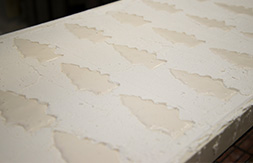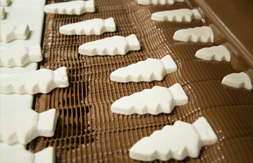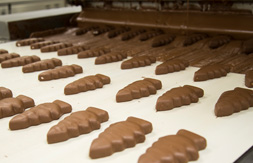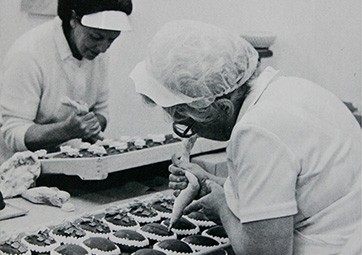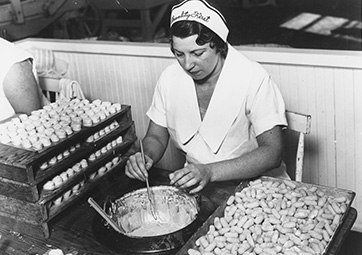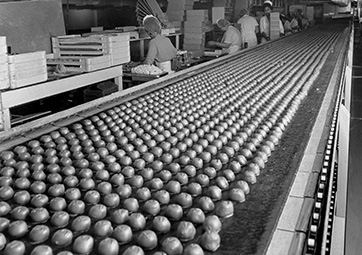- TOFFEE-ETTES®
- BUTTERSCOTCH SQUARES
- FUDGE
- MARSHMALLOW TREES
TOFFEE-ETTES®
See’s Toffee-ettes® are a year-round treat and one of our very best sellers. We take our famous, rich, buttery toffee with fresh in house roasted almonds, and smother it in creamy milk chocolate. We then roll each piece in freshly crushed almonds before placing them into their one-pound containers and sending them to you!
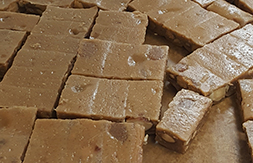
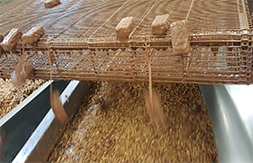
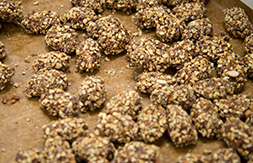
BUTTERSCOTCH SQUARES
Smooth, satisfying Butterscotch Squares are a See's classic. First, the finest brown sugar, cream, vanilla and other tasty ingredients are expertly combined to form a tasty square center, and then the candy travels down a conveyer belt into a waterfall of delicious milk chocolate, where each piece is enrobed with a thick layer.
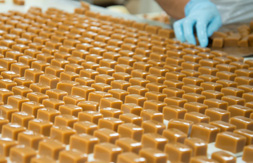
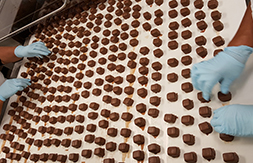
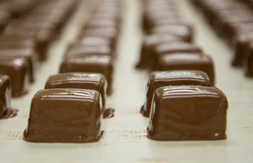
FUDGE
In three mouthwatering flavors—Vanilla Walnut, Chocolate Walnut and Bordeaux™ Pecan—our smooth and creamy fudge is made with real butter, cream and crunchy English walnuts or crisp pecans. See's Chocolate Walnut Fudge was, in fact, one of Mary See's original recipes. We still make our fudge using the same attention to quality as always.
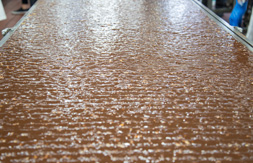
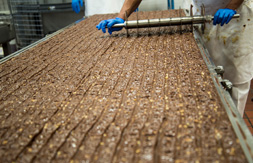
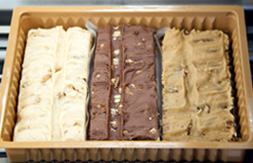
MARSHMALLOW TREES
Our Marshmallow Trees are made by placing See's honey marshmallow into specially crafted tree molds, shaping each marshmallow into a classic Christmas tree. Next, the fluffy trees are enrobed in layers of smooth milk chocolate from all sides. They are then individually wrapped, packaged and ready to go!
